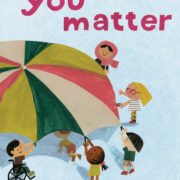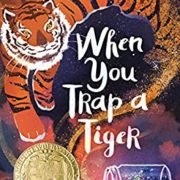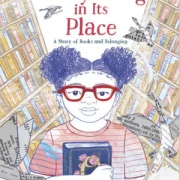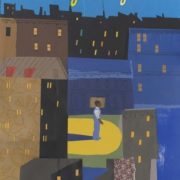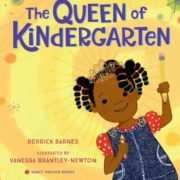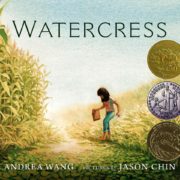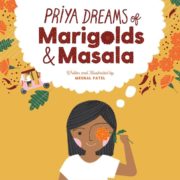WE ALL PLAY by Julie Flett & JOJO MAKOONS by Dawn Quigley
I love to set both small and larger reading challenges for myself throughout the year. In November, I chose to primarily read titles by Native authors. I encourage you to explore the growing number of titles in this category at the Joplin Public Library. I will share two of my most recent favorites.
The first title is JULIE FLETT‘s picture book “WE ALL PLAY.” Flett is a Cree-Metis author and illustrator who has won numerous awards. “We All Play” is a simple book, told mostly in English with Cree words throughout, that depicts children playing in ways similar to bison, beluga whales, geese and other North American animals. The text is a pattern; three to four pages show animals hopping, peeking or wobbling, and every fourth spread shows children moving their bodies in similar ways with the repeating refrain “We play too! (‘Kimêtawânaw mîna’)” at the top of the page.
In the reader’s note at the end of the book, Flett describes the ways in which her father taught her about her relationship to nature as a young girl. “We All Play” depicts a most basic connection between us and nature: Children of all species playing together outside.
Once you have seen it, Flett’s art is instantly recognizable. She works primarily with earth tones; this title in particular utilizes many shades of beige, white, gray and green, with pops of clay red, sky blue, and goldenrod appearing occasionally. Animals, humans and the landscape have only the most basic of features, and the edges are soft and smudged.
At the conclusion of the story, Flett includes a list of animals featured in the book. Each animal name is listed in English and three variations of the name in Cree (one, more than one, and “younger, smaller, cuter”). The author also includes a bit of linguistic education on the Plains Cree dialect, including the pronunciation of words and sounds. This would be an excellent group read-aloud, as it lends itself well to movement and conversation. You can find “We All Play” in the picture book category at the Joplin Public Library.
Another excellent book I read this month is DAWN QUIGLEY‘s “JOJO MAKOONS: THE USED-TO-BE-BEST FRIEND.” This first book in the forthcoming series follows the plucky 7-year-old narrator JoJo, an Ojibwe girl living on a fictional reservation (Pembina Ojibwe) learning to navigate friendships, life with her mom and kokum (grandmother), and figuring out how to rescue her home best friend, her cat Mimi, from getting shots (among other things). JoJo is funny and earnest, and she often wonders why people — her family, her teachers, her best friends — think differently than she does. Why can’t she bring Mimi to school? Why don’t “couch” and “touch” rhyme when they obviously look the same? Why isn’t Fern saving her a seat at lunch anymore?
JoJo’s problems feel both real and urgent, as problems tend to feel whether you are 7 or 37. The spunky young protagonist is similar in voice to Junie B. Jones, another beloved first grader with her own series.
JoJo Makoons is published by Heartdrum, a Native-focused imprint of HarperCollins created in partnership with We Need Diverse Books. JoJo’s Ojibwe culture is woven into every aspect of the story, from JoJo’s hilarious pronunciation tips (“If you can say Tyrannosaurus rex, you can say nindizhinikaaz”) to Tara Audibert’s grayscale art in JoJo’s classroom. JoJo’s funny narrative style lends itself well to a family or classroom read aloud, though I found myself laughing out loud while reading solo. I love JoJo Makoons, and I know you will too. You can find “JoJo Makoons: The Used-to-be Best Friend” in the easy fiction section of the Joplin Public Library.

